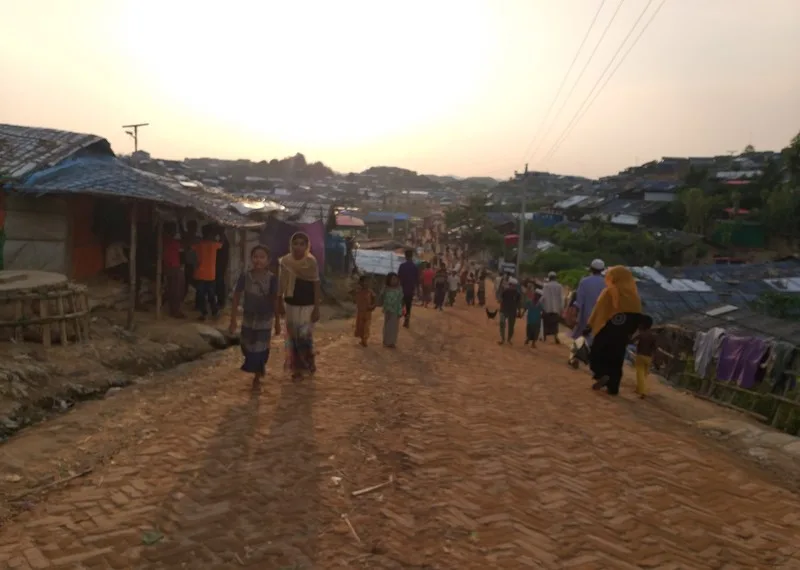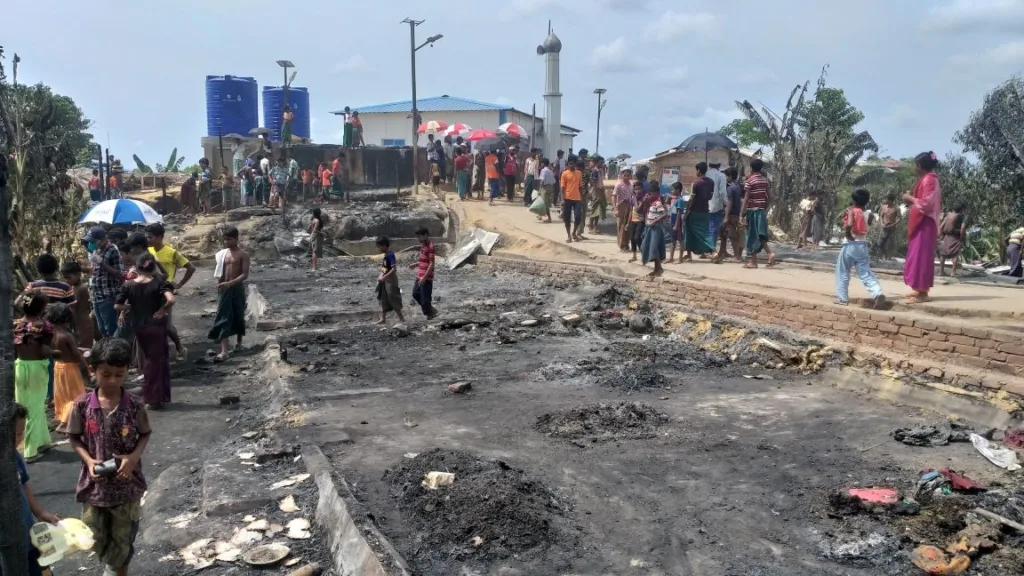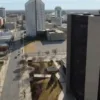Six years ago today, 25 August 2023, the ethnic cleansing of the Rohingya people of Myanmar began in earnest. Thousands died and over half the Rohingya population had to flee into neighbouring Bangladesh. Here Maung Sawyeddollah, a 22-year-old Rohingya refugee puts the blame, at least in part, firmly at the feet of Facebook.
I’d like to tell you about my home.
I’m from a village called Nga Yent Change in western Myanmar. My father had a thriving store there, and I lived with my parents and six younger siblings in a large house in a spacious compound surrounded by mango, coconut, and banana trees. Sometimes elephants would meander into the village and then out again into the forest.
I had many friends in the village next door. It didn’t matter that they were Rakhine (mostly Buddhist) and we were Rohingya (mostly Muslim). We were just kids who’d meet in a shared field to play chinlone (a popular team game using a weaved ball). We had a lot of fun together, same as any other kids.
Life is a daily struggle to find even food and water. There have been fires, there have been killings.
Maung Sawyeddollah
Now, six years since the Myanmar military’s ‘clearance operations’, here I am in Cox’s Bazar: the biggest refugee camp in the world across the border in Bangladesh. Around a million of my people are now crammed into this place, living in tiny shelters made from bamboo and tarpaulin. Life is a daily struggle to find even food and water. There have been fires, there have been killings.

How did we end up here?
I blame Mark Zuckerberg, Facebook, and the people who run Meta for helping to create the conditions that allowed the Myanmar military to unleash hell upon us. The company’s vast wealth is generated, at least in part, through the human misery suffered by the Rohingya.
I was only 11 when I first saw a rise in hate speech against my people on Facebook. It came after a group of Rohingya was accused of raping and killing a Buddhist girl in 2012. That crime, to my knowledge, was never solved. Around then my warm friendship with my Rakhine neighbors began to cool.
There had been a long history of tension between communities in the area, but I had experienced no substantial day to day animosity until Facebook and smartphones came along. Facebook became a tool for politicians, bigots, and opportunists to propagate and escalate hate against my people which was then translated into real life harm.
I saw many hateful and Islamophobic messages against Rohingya on Facebook.
Maung Sawyeddollah
In late 2016, the persecution began to have a direct impact on my family. My father and some other financially stable Rohingya were falsely accused of attacking a police station and handed big fines. My uncle Abusufian and his son Busha were arrested for not paying their fine and were jailed without trial; they spent over four years in prison.
Between 2016 and 2017, I saw many hateful and Islamophobic messages against Rohingya on Facebook. One message incited people to get together to “save the country and kick out the illegal ‘Bengalis’”, while another stated that “the birth rate of the illegals is very high. If we let it continue, soon the president of our country will have a beard.” The days of playing chinlone in a field with my Rakhine friends were now over.
I reported this to Facebook, but they did nothing, telling me: “It doesn’t contravene our community standards.”
Then the killing began.
I was aged only 15 at the time and a good student, I hope to become a lawyer someday. On 25th August 2017 I got up early to study for my matriculation exams. Suddenly, I heard guns firing from the police station, it went on for about three hours, and then the military arrived; they killed Mohammad Shomim, a villager who owned a shop in the local market. I didn’t see him die, but I saw his body in the street. Then they secretly laid explosives in the street and I saw a villager called Hussin Ahmed die in an explosion. Everyone was scared and many people went to hide in the forest.
We’d heard what had happened in other villages and were sure they would kill us.
Maung Sawyeddollah
We heard that the authorities had started slaughtering Rohingya in other villages, and some people started fleeing to Bangladesh the next day. We stayed in our home until 30th August. Later, the military announced that everyone must gather in a field in our village beside a Red Crescent office. We didn’t go. We’d heard what had happened in other villages and were sure they would kill us.
We escaped to the homes of family friends in other villages for a few nights and briefly went home but our village was deserted. Everyone knew there had been widespread violence in the area – many people had been killed and women and girls had been raped.
My family and I then decided to escape to Bangladesh on foot. We saw lots of dead bodies in the villages, on the road, and in the paddy fields on the way. Houses were burnt to a crisp. We trekked on through the jungle and across the mountain in the cold and rain. We didn’t eat for days. After 15 days, we arrived in Bangladesh.
Today, exactly six years later and living in Cox’s Bazar refugee camp, I still yearn for home. I refuse to give up on my dream of becoming a lawyer but there are very few opportunities for young Rohingya to escape the camp, we have no right to education.
I still believe in a better future, to be able to live in a secure and peaceful world. Do the people who run Facebook feel the same way? They failed to address this hateful content, even by their own policies.
I’d like to meet Mark Zuckerberg and his team, maybe they’d like to come and spend a night or two in the refugee camp. I’d tell them: “Can’t you see your role in our suffering? We asked you, repeatedly, to try and help make things better for us. Funding education to help young people can’t ever reverse what happened, but it would, at least, help us build a brighter future. Yet you ignore our pleas. Tell me, do you feel anything for us? Is it only about the data, is it only about the dollars?”



